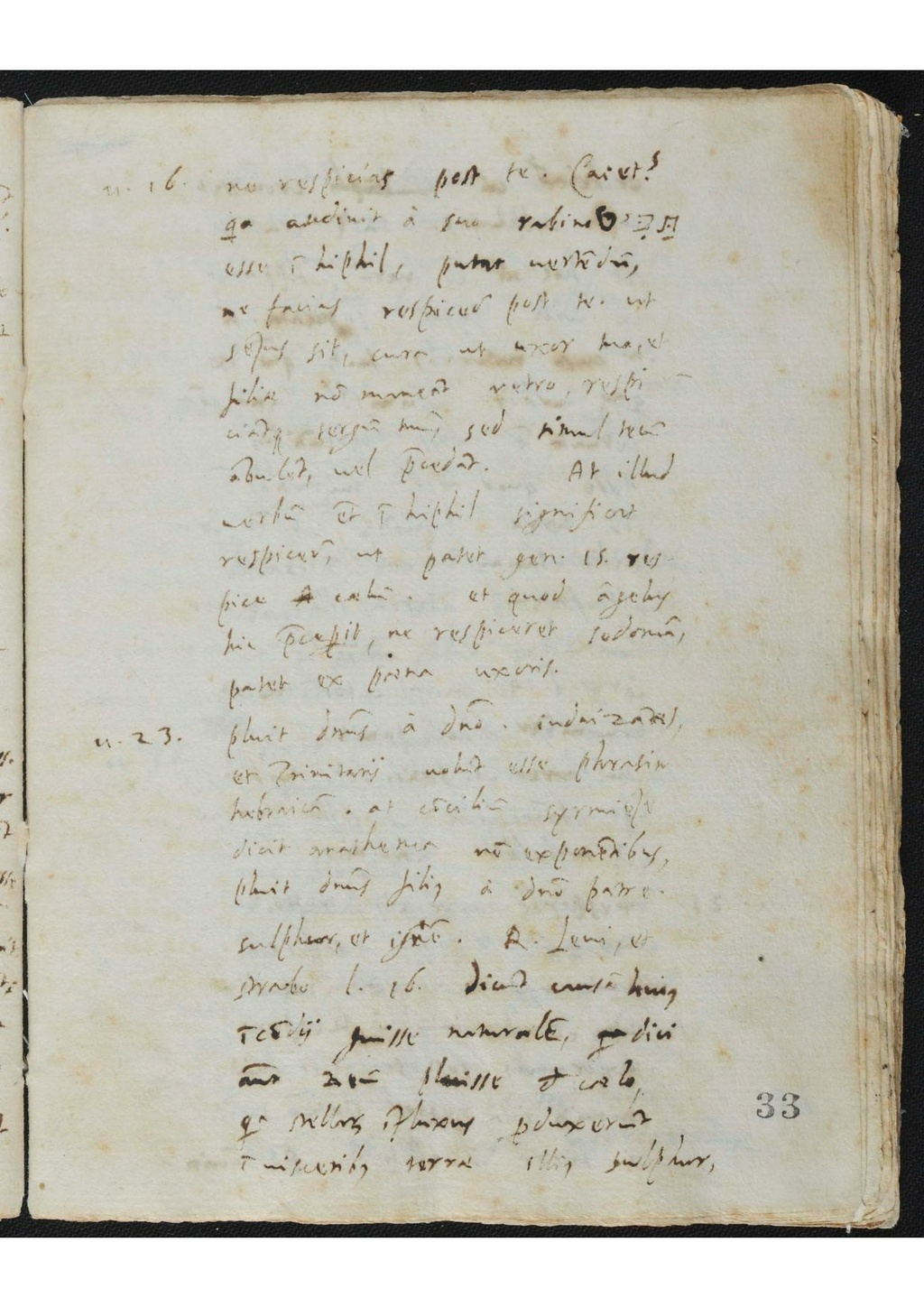16 non respicias post te. Cajetanus
quia audivit a suo rabino טַּבִּיט
esse in hiphil, putat vertendum,
ne facias respicere post te. ut
sensus sit, cura ut uxor tua, et
filiae non maneant retro, respi
ciatque tergum tuum sed simul tecum
ambulet, vel praecedat.[1] at illud
verbum etiam in hiphil significat
respicere, ut patet gen 15 res
pice caelum.[2] et quod angelus
hic praecipit, ne respiceret sodomam,
patet ex poena uxoris.
v. 23 pluit dominus a domino. iudaizantes
et Trinitarii volunt esse phrasim
hebraicam. at concilium syrmiense
dicit anathema non exponentibus,
pluit dominus filius a domino patre
sulphur et igne. R Levi, et
Strabo liber 16 dicunt cause huius
incendii fuisse naturalem qu dici
autem Deum pluisse de caelo
quia stellarum influxus produxerunt
in visceribus terrae illiussulphur,
---page break---
- ↑ Iuxta hebraeum habetur. Non facies respicere post te. Mandatur Lot ut studeat ad hoc ut mulieres non respiciant post ipsum: hoc est ut non tardent in itinere, sed accelerant sic ut nec remaneant post Lot in itinere sed simul vel ante incendant, nec sequendo tardent respiciendo retro, Caietanus, Commentarii illustres planeq́, pp. XCIII-XCIIII. Referring to Cajetan’s jewish Hebrew teacher as rabbi Bellarmine provides of the Hebrew verb the hiphil תַּבִּ֣יט, thus teaching his students Hebrew grammar. For Cajetan’s use of a jewish Hebrew teacher see Michael O’Connor, Cajetan's Biblical Commentarie . Motive and method (Leiden – Boston: Brill, 2017), p. 142, note 58.
- ↑ Gen. 15,5: הַבֶּט־נָא הַשָׁמַיְמָה, translated in the Vulgate as 'suspice caelum'.
